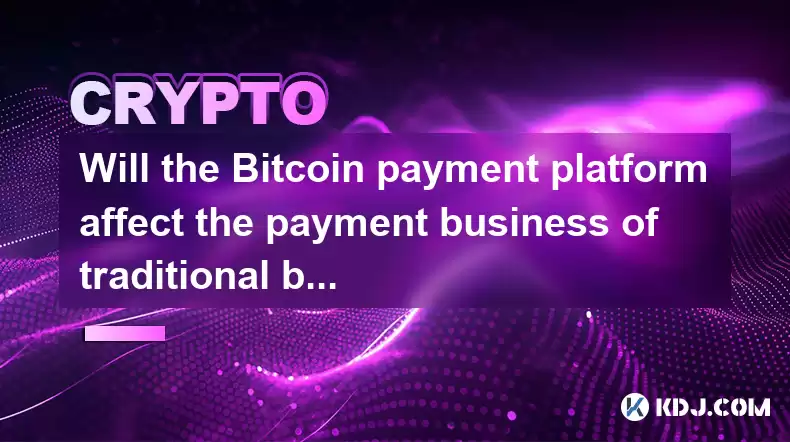-
 Bitcoin
Bitcoin $115900
-2.21% -
 Ethereum
Ethereum $3710
-3.94% -
 XRP
XRP $3.009
-4.19% -
 Tether USDt
Tether USDt $1.000
0.01% -
 BNB
BNB $783.6
-1.88% -
 Solana
Solana $171.7
-4.75% -
 USDC
USDC $1.000
0.00% -
 Dogecoin
Dogecoin $0.2098
-6.05% -
 TRON
TRON $0.3276
0.13% -
 Cardano
Cardano $0.7372
-5.46% -
 Hyperliquid
Hyperliquid $41.45
-3.60% -
 Sui
Sui $3.624
-5.88% -
 Stellar
Stellar $0.3978
-5.52% -
 Chainlink
Chainlink $16.93
-6.13% -
 Bitcoin Cash
Bitcoin Cash $570.3
-2.41% -
 Hedera
Hedera $0.2531
-6.33% -
 Avalanche
Avalanche $22.47
-5.11% -
 Ethena USDe
Ethena USDe $1.001
-0.02% -
 Toncoin
Toncoin $3.486
1.56% -
 UNUS SED LEO
UNUS SED LEO $8.933
-0.25% -
 Litecoin
Litecoin $106.7
-3.55% -
 Shiba Inu
Shiba Inu $0.00001245
-4.79% -
 Polkadot
Polkadot $3.710
-4.20% -
 Uniswap
Uniswap $9.391
-7.68% -
 Monero
Monero $307.6
-1.90% -
 Dai
Dai $0.0000
-0.01% -
 Bitget Token
Bitget Token $4.401
-3.37% -
 Cronos
Cronos $0.1412
-3.90% -
 Pepe
Pepe $0.00001077
-6.52% -
 Aave
Aave $261.6
-6.15%
Will the Bitcoin payment platform affect the payment business of traditional banks?
Bitcoin payment platforms challenge traditional banks with faster transactions and lower fees, but face hurdles in adoption and regulation.
Apr 19, 2025 at 09:56 am

The emergence of Bitcoin and other cryptocurrencies has sparked a significant debate about their impact on the traditional financial sector, particularly on the payment business of banks. The Bitcoin payment platform, with its decentralized nature and promise of lower transaction fees, poses both a challenge and an opportunity for traditional banks. This article will delve into how Bitcoin payment platforms might affect the payment business of traditional banks, exploring various aspects such as transaction speed, cost, security, and customer adoption.
Transaction Speed and Efficiency
One of the key features of Bitcoin payment platforms is their potential to offer faster transaction times compared to traditional banking systems. Traditional banks often process transactions through multiple intermediaries, which can lead to delays. In contrast, Bitcoin transactions are processed through a peer-to-peer network, which can significantly reduce the time required for funds to move from one account to another.
For instance, a Bitcoin transaction can be completed in minutes, whereas a bank transfer might take several days, especially for international transfers. This speed can be particularly appealing for businesses that need to move funds quickly.
However, it's important to note that Bitcoin's transaction speed can be affected by network congestion. During peak times, transactions might take longer to be confirmed, which could be a drawback for users expecting instant transfers.
Transaction Costs
Another area where Bitcoin payment platforms can impact traditional banks is in the realm of transaction costs. Bitcoin transactions typically have lower fees compared to those charged by banks for international transfers or even domestic payments. This is because Bitcoin eliminates the need for intermediaries, which often charge fees for their services.
For example, sending money internationally through a bank can incur fees of up to 5% of the transaction amount, whereas a Bitcoin transaction might cost less than 1%.
Despite this advantage, the volatility of Bitcoin's value can introduce additional costs for users who need to convert their cryptocurrency into fiat currency. This volatility can offset some of the savings on transaction fees.
Security and Privacy
Bitcoin payment platforms also offer a different approach to security and privacy compared to traditional banks. Bitcoin transactions are recorded on a public ledger called the blockchain, which provides a high level of transparency and security. However, this transparency can also be a double-edged sword, as it makes transactions traceable.
On the other hand, traditional banks offer more privacy for their customers, as transactions are not publicly visible. However, banks are also more susceptible to fraud and cyber-attacks, which can compromise customer data.
Bitcoin's use of cryptographic keys adds an additional layer of security, as users control their funds through private keys. This can be more secure than traditional banking systems, where banks hold the keys to customer accounts.
Customer Adoption and Regulatory Challenges
The adoption of Bitcoin payment platforms by customers is a critical factor in determining their impact on traditional banks. While some customers are eager to embrace the new technology, others remain wary due to the complexity and perceived risks associated with cryptocurrencies.
For instance, businesses that frequently engage in international trade might be more inclined to use Bitcoin to save on transaction costs. However, individual consumers might be less likely to adopt Bitcoin due to its volatility and the learning curve associated with managing cryptocurrencies.
Regulatory challenges also play a significant role in the adoption of Bitcoin payment platforms. Governments and financial regulators are still grappling with how to classify and regulate cryptocurrencies, which can create uncertainty for both users and businesses.
Integration with Traditional Banking Systems
Some traditional banks are beginning to explore ways to integrate Bitcoin and other cryptocurrencies into their existing payment systems. This integration can help banks stay competitive and offer their customers more options for making payments.
For example, some banks have started offering cryptocurrency trading services or allowing customers to hold cryptocurrencies in their accounts. This can help banks attract tech-savvy customers who are interested in cryptocurrencies.
However, integrating Bitcoin into traditional banking systems is not without challenges. Banks must navigate regulatory hurdles and ensure that they can manage the risks associated with cryptocurrencies, such as volatility and potential fraud.
Impact on Traditional Bank Revenue Streams
The rise of Bitcoin payment platforms could potentially disrupt traditional bank revenue streams, particularly those related to payment processing and international transfers. Banks earn significant revenue from transaction fees, and the adoption of Bitcoin could reduce this income.
For instance, if more businesses and consumers start using Bitcoin for payments, banks could see a decline in the volume of transactions processed through their systems. This could lead to a loss of revenue from transaction fees.
To mitigate this risk, some banks are exploring new revenue streams, such as offering cryptocurrency-related services or investing in blockchain technology. This can help them adapt to the changing landscape and maintain their profitability.
Frequently Asked Questions
Q: Can traditional banks completely replace their payment systems with Bitcoin?
A: It is highly unlikely that traditional banks would completely replace their payment systems with Bitcoin due to regulatory challenges, customer preferences, and the need to maintain a diverse range of payment options. However, banks may integrate Bitcoin and other cryptocurrencies into their existing systems to offer more choices to their customers.
Q: How do Bitcoin payment platforms handle disputes and chargebacks compared to traditional banks?
A: Bitcoin transactions are irreversible, which means there is no mechanism for chargebacks or refunds once a transaction is confirmed. In contrast, traditional banks offer dispute resolution services and can reverse transactions in cases of fraud or errors. This difference can be a significant consideration for businesses and consumers when choosing between Bitcoin and traditional banking systems.
Q: Are there any countries where Bitcoin payment platforms are more widely accepted than traditional bank payments?
A: While Bitcoin is gaining acceptance in various countries, it is still not as widely accepted as traditional bank payments in most places. However, some countries with less developed banking infrastructure, such as certain parts of Africa and Latin America, are seeing increased adoption of Bitcoin for payments due to its accessibility and lower costs.
Q: How do traditional banks view the rise of Bitcoin payment platforms?
A: Traditional banks have mixed views on the rise of Bitcoin payment platforms. Some see it as a threat to their business model, particularly in terms of transaction fees and international transfers. Others view it as an opportunity to innovate and offer new services to their customers. Many banks are taking a cautious approach, monitoring the development of cryptocurrencies and exploring ways to integrate them into their operations.
Disclaimer:info@kdj.com
The information provided is not trading advice. kdj.com does not assume any responsibility for any investments made based on the information provided in this article. Cryptocurrencies are highly volatile and it is highly recommended that you invest with caution after thorough research!
If you believe that the content used on this website infringes your copyright, please contact us immediately (info@kdj.com) and we will delete it promptly.
- Ripple, XRP, and RLUSD: Navigating Growth and Innovation
- 2025-08-01 08:30:37
- Tether's Triumph: Profits, US Initiatives, and Stablecoin Supremacy
- 2025-08-01 09:11:00
- Ethereum, ZK-VMs, and Quantum Resistance: A New Era for Blockchain Security?
- 2025-08-01 09:30:12
- Ethereum: Institutional Interest Surges Amid Network Upgrades
- 2025-08-01 08:50:19
- JPMorgan, Ripple, and Blockchain Payments: A New York Minute on Institutional Adoption
- 2025-08-01 08:30:37
- Coinbase Goes All-In: Tokenized Stocks, Prediction Markets, and the Future of Finance
- 2025-08-01 08:50:19
Related knowledge

What is Chainlink (LINK)?
Jul 22,2025 at 02:14am
Understanding Chainlink (LINK): The Decentralized Oracle NetworkChainlink is a decentralized oracle network designed to bridge the gap between blockch...

What is Avalanche (AVAX)?
Jul 22,2025 at 08:35am
What is Avalanche (AVAX)?Avalanche (AVAX) is a decentralized, open-source blockchain platform designed to support high-performance decentralized appli...

What is Polkadot (DOT)?
Jul 19,2025 at 06:35pm
Understanding the Basics of Polkadot (DOT)Polkadot (DOT) is a multi-chain network protocol designed to enable different blockchains to transfer messag...

What is Litecoin (LTC)?
Jul 23,2025 at 11:35am
Overview of Litecoin (LTC)Litecoin (LTC) is a peer-to-peer cryptocurrency that was created in 2011 by Charlie Lee, a former Google engineer. It is oft...

What is Monero (XMR)?
Jul 21,2025 at 10:07am
What is Monero (XMR)?Monero (XMR) is a decentralized cryptocurrency designed to provide enhanced privacy and anonymity for its users. Unlike Bitcoin a...

How to add indicators to Ethereum chart on TradingView?
Jul 19,2025 at 07:15am
What Is an Ethereum Chart on TradingView?The Ethereum chart on TradingView is a visual representation of the price movement of Ethereum (ETH) over a s...

What is Chainlink (LINK)?
Jul 22,2025 at 02:14am
Understanding Chainlink (LINK): The Decentralized Oracle NetworkChainlink is a decentralized oracle network designed to bridge the gap between blockch...

What is Avalanche (AVAX)?
Jul 22,2025 at 08:35am
What is Avalanche (AVAX)?Avalanche (AVAX) is a decentralized, open-source blockchain platform designed to support high-performance decentralized appli...

What is Polkadot (DOT)?
Jul 19,2025 at 06:35pm
Understanding the Basics of Polkadot (DOT)Polkadot (DOT) is a multi-chain network protocol designed to enable different blockchains to transfer messag...

What is Litecoin (LTC)?
Jul 23,2025 at 11:35am
Overview of Litecoin (LTC)Litecoin (LTC) is a peer-to-peer cryptocurrency that was created in 2011 by Charlie Lee, a former Google engineer. It is oft...

What is Monero (XMR)?
Jul 21,2025 at 10:07am
What is Monero (XMR)?Monero (XMR) is a decentralized cryptocurrency designed to provide enhanced privacy and anonymity for its users. Unlike Bitcoin a...

How to add indicators to Ethereum chart on TradingView?
Jul 19,2025 at 07:15am
What Is an Ethereum Chart on TradingView?The Ethereum chart on TradingView is a visual representation of the price movement of Ethereum (ETH) over a s...
See all articles

























































































